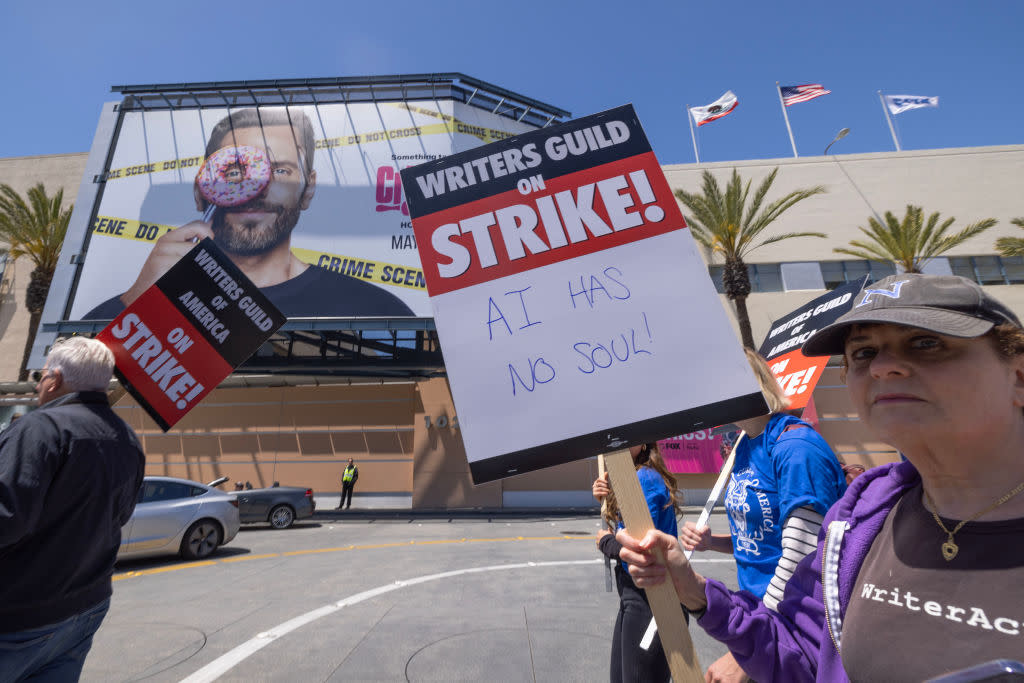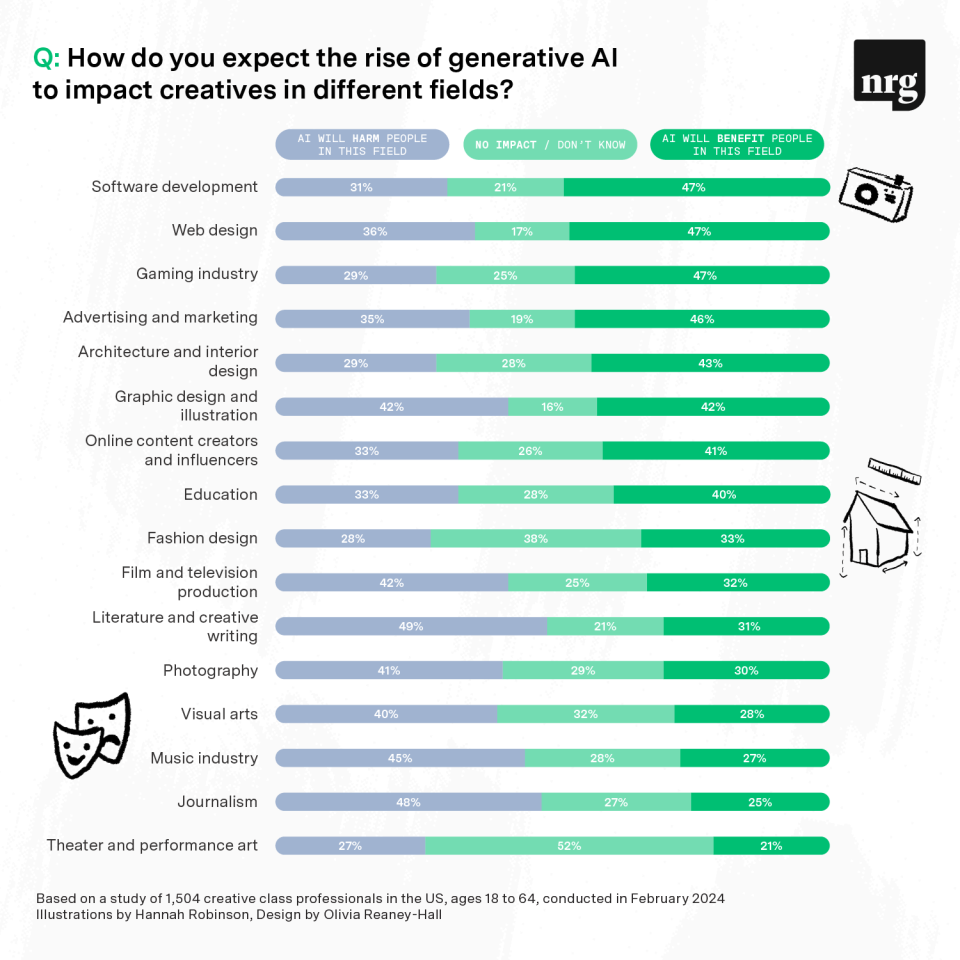42% of Film and TV Production Workers Say AI Will ‘Harm People’ in Their Field — Exclusive

Aye yai yai, the debate around AI.
In a new NRG (National Research Group) poll shared exclusively with IndieWire, 42 percent of film and television production professionals say AI “will harm people” in their field. Yet nearly a third (32 percent) say it will “benefit” them, and the remaining one-quarter either believe it will have no impact or say they do not yet know the impact.
More from IndieWire
'Oddity' Review: Ghostly Home Invader Ransacks a Junk Drawer of Terror Treasures for Shudder
Hot Docs Exodus: Artistic Director Exits and 10 Programmers Resign, a Month Before 2024 Festival
We know which side Dakota Johnson is on.
The February 2024 survey of just over 1,500 people ages 18-64 was not limited to those in the film and TV production space. It was, however, limited to what NRG deemed “creative class professionals” who are employed either full-time or part-time in a job that requires “high degrees of creativity and autonomy.” That covers about 31 percent of the U.S. labor market; the results were weighted to represent American demographics.
One polled director (of mostly TV commercials), Michael Malagon, offered more than just his check marks in NRG’s boxes.
“Generative AI is a powerful tool, but it has the most potential when used by professionals with established storytelling expertise. Writers and other creatives are going to be best positioned to interpret and utilize AI-generated content effectively, given their deep understanding of the story and the sensibilities they’ve developed over their careers,” he is quoted in the study as saying. “Because of this, I think that human creatives will continue to play a vital role in the filmmaking process well into the future.”
Tell that to the Daniels — maybe it’ll help them sleep better tonight.
All told, two-thirds (66 percent) of the larger group polled say they have either “experimented with” (49 percent) or are “regularly using” AI (17 percent). Artificial-intelligence tools are more common among men than women, and are far more common with the youngs: 77 percent of Gen Z respondents (born 1997 and later) said they have used at least one generative-AI application compared to 44 percent of Boomers (born 1946-1964).
Freelancers may be the most impacted by the creative capabilities of AI. Nearly half (49 percent) of the creative class freelancers polled say they “will have less work as a result of AI,” with those in the creative writing and music industry fields are among the most concerned. Oh, and also the journalists. Just great.
Those fields are the only three more concerned than our friends firmly in the film and TV space. See below. (Those in graphic design and illustration join the film and television production professionals with 42 percent reporting they see AI doing them harm.)

Almost everyone polled could agree on a greater need of transparency and regulation surrounding AI. Roughly three-quarters (74 percent) of those surveyed say they are concerned about the intellectual-property issues raised by new AI tools. Even more, 85 percent, agreed that there will be a need for new laws to address IP and copyright questions surrounding generative AI applications.
And if humans are going to train these tools, the humans should be paid. Eighty percent of the respondents said artists deserve some form of financial compensation when their work is used to train AI, and 76 percent said artists and other creatives should always clearly disclose when they have used AI to help them create content.
On the subject of money, there does seem to be some division on generative AI when the data is broken down by socioeconomic status. Exactly half of those surveyed who have household incomes “around or above” $100,000 believe generative AI will be a net positive for creative workers. But less than a third (32 percent) of those earning under $50,000 responded in kind.
It is very much a “fragile truce” artists have made with AI, NRG’s Research Director Fergus Navaratnam-Blair told IndieWire.
“By and large artists have made a fragile truce with AI as they test drive its capabilities,” Navaratnam-Blair said. “There’s a certain ‘arranged marriage’ quality to the relationship – many creatives are embracing AI not because they actively want to, but because they feel obligated to or risk falling behind their peers. An ‘adapt or die’ mentality has taken hold, with 57 percent of creative class workers thinking that generative AI will lead to higher productivity expectations among employers.”
Best of IndieWire
The Best LGBTQ Movies and TV Shows Streaming on Netflix Right Now
Guillermo del Toro's Favorite Movies: 54 Films the Director Wants You to See
Nicolas Winding Refn's Favorite Films: 37 Movies the Director Wants You to See
Sign up for Indiewire's Newsletter. For the latest news, follow us on Facebook, Twitter, and Instagram.

 Yahoo News
Yahoo News 
